The Great Replacement as a Crime (IV. Is It Democratic?)
Examining whether the Great Replacement is consented to by the public
(Note: this essay is part of a series.)
Supporters of the Great Replacement (when they are not denying it) celebrate it. Clearly those people, in some sense, “desire” it. But what about the general public? After all, in our supposedly democratic age, a fundamental measure of any government policy is whether the public consent to it.
Regarding the Great Replacement, the argument goes that the public consent to it by default, because they elect governments which then increase non-white immigration. The responsibility can surely be placed upon the voters who chose that party at the ballot box?
There are three points, and they can be phrased as questions:
when did voters elect a government that promised to substantially increase (non-white) immigration?
when did any country conduct an official referendum on the issue? It is a very important issue, after all, easily warranting a referendum.
in lieu of such referenda, what do public opinion polls reveal?
I will use the case study of Great Britain. We will examine the period 1964 to 2024, for which reliable data is available.
Here is the trend of immigration (actual, not net) into Britain over that time:

The trend was very clearly a generally upward one. Dips along the way were hardly substantial or sustained enough even to give false hope. Each one was not only swiftly reversed, but usually followed by a new all-time high. The British people were expected to tolerate this. Unfortunately for their progeny, they did.
How can I say that the British were opposed to this? We can look at what they voted for in the general elections during this period.
We will survey the manifesto pledges of the winning party in every general election since 1964. This is onerous and very repetitious, but it will give the lie to the claim that the British ever “voted for mass immigration”. On the contrary, they never wanted it and always voted into power parties which promised to either reduce it or “get it under control” or “keep it at manageable levels” (both of which would certainly be interpreted by the public as “reduce it”).
In fact, from very early on it was understood, even by the Labour Party, that in order to be electable they had to make this false promise to reduce immigration, so ardent was public sentiment. It became a mantra for would-be Prime Ministers to intone at conferences that immigration had to “brought under control” and reduced to “reasonable numbers”.
Initially, they also stressed the importance of integrating the newcomers into British culture, but that was soon abandoned as futile - yet, even once the government knew integration was futile, they kept allowing more newcomers, and in ever larger numbers. (And today, expecting them to integrate is regarded by the government as an “extreme right-wing” “terroristic” position.)
We will now go through each election, showing what the winning party promised and what then happened with immigration until the next election. In each graph, a year will be coloured red if it had higher immigration than all years prior to the graph.
1964 (Labour)
Immigration… requires at the same time action to deal with the problems that it creates for the localities principally affected. A Labour Government will… ensure that immigrants are absorbed into the community without… creating social tensions.
In Smethwick, the Labour candidate was defeated by a Conservative who refused to condemn the slogan: “If you want a n****r for a neighbour, vote Labour.” This indicates how firmly against immigration the public were in 1964. But the recognition of this fact by political parties also meant that they could use it to lure voters; simply promise to reduce immigration.
1966 (Labour)
The number of immigrants coming to Britain must be limited if integration is to be successful. The Labour Government has already taken action to this end.
The result? New all-time highs:
1970 (Conservative)
By now the public were much more aware of immigration and it was becoming an important electoral issue. The Conservative manifesto focused on reducing it by tightening controls, especially regarding Commonwealth (ie. non-white) immigration. They pledged to limit it to manageable levels and to strictly control who could settle in Britain.
After the all-time highs of the late 1960s, there was now a lull throughout the 1970s:
1974 (Labour) x2
There were two general elections in 1974, both won by Labour, and in both campaigns they acknowledged that “firm immigration control is necessary”.
There was a lull to nearly 150k, then a return to nearly 200k.
1979 (Conservative)
Even the “lull” throughout the 1970s still meant around 200k entering per year, causing enough social change that, by 1979, immigration had become a vital issue for voters. The National Front threatened to become a serious electoral force, so Thatcher’s Conservative Party pledged to address immigration.
They promised to control immigration more strictly and reduce it to a “manageable level”, especially non-EU (non-white) immigration.
They also acknowledged illegal immigration and promised to tackle abuses of the immigration and asylum system.
There was a momentary lull to an all-time low (in our period of study) then immediately a return to 200k:
This momentary lull probably helped establish the Thatcher government’s “tough” reputation, and thus set the stage for them to betray the public in every subsequent year that they were in power.
1983 (Conservative)
They reassured voters that they would maintain strong border controls and enforce immigration laws to prevent abuse of the system, reducing illegal immigration.
Now we see what the supposed “hard right” Thatcher government actually did regarding protecting the electorate from demographic change. Immigration broke the 250k barrier:
1987 (Conservative)
They pledged to control the number of immigrants. They acknowledged that immigration threatened social harmony and spoke of the need to ensure integration.
Immigration broke the 300k barrier:
1992 (Conservative)
They promised to reduce immigration, acknowledging concerns about public services, jobs and social cohesion. They reassured voters that a tough (but fair) approach would be taken to immigration control.
After just one year (1993), numbers returned to the all-time high:
1997 (Labour)
Every country must have firm control over immigration and Britain is no exception. We will ensure swift and fair decisions on whether someone can stay in Britain. We will speed up the processing of asylum claims, remove those who are not entitled to stay, and provide proper support for those who are.
This was the famous “New Labour”, sweeping away the crusty racism of the Conservative government (with its many record-breaking years of immigration) and ushering in a new era of openness to diversity, but, in true Tony Blair fashion, speaking of rules and fairness.
Immediately, immigration broke the 400k barrier with four record-breaking years:
Towards the end of their first term New Labour secretly prepared to increase immigration even more. What was going on behind closed doors at this time was only revealed years later, by one of New Labour’s speech-writers, Andrew Neather:
The PIU’s [Tony Blair’s Cabinet Office think-tank]… big immigration report was surrounded by an unusual air of both anticipation and secrecy. Drafts were handed out in summer 2000 only with extreme reluctance: there was a paranoia about it reaching the media.
[The version eventually published in January 2001] focused heavily on the labour market case. But the earlier drafts I saw also included a driving political purpose: that mass immigration was the way that the Government was going to make the UK truly multicultural.
I remember coming away from some discussions with the clear sense that the policy was intended - even if this wasn’t its main purpose - to rub the Right’s nose in diversity and render their arguments out of date.
Ministers were very nervous about the whole thing. For despite [Barbara] Roche’s keenness to make her big speech and to be upfront, there was a reluctance elsewhere in government to discuss what increased immigration would mean, above all for Labour’s core white working-class vote. This shone through even in the published report: the “social outcomes” it talks about are solely those for immigrants.
He underlined:
It didn’t just happen: the deliberate policy of ministers from late 2000 until at least February [2008]... was to open up the UK to mass migration.
[…]
The results were dramatic. In 1995, 55,000 foreigners were granted the right to settle in the UK. By 2005 that had risen to 179,000.
[…]
the Government had created its longed-for immigration boom. But ministers wouldn’t talk about it [publicly]. In part they probably realised the conservatism of their core voters: while ministers might have been passionately in favour of a more diverse society, it wasn’t necessarily a debate they wanted to have in working men’s clubs in Sheffield or Sunderland.
It couldn’t be clearer. New Labour deliberately set out to hugely increase immigration and to deceive the public about it. There had already been four record-breaking years, and there would be yet another six by the time Neather revealed the truth.
2001 (Labour)
At the same time Labour were doing all of that secretly between mid 2000 and early 2001, they were preparing a manifesto for the May 2001 election to deceive the public. It had a dedicated section titled “Asylum and Immigration: A System in Which the Public Can Have Confidence”. Their emphasis was on maintaining and improving the system so that abuse was cracked down upon and rules were followed.
Immediately, immigration broke the 500k barrier and within two years nearly breached 600k:
2005 (Labour)
Labour has always supported controlled immigration and a fair asylum system. We believe that… immigration should be managed effectively and in a way that maintains public confidence.
That was all hot air, as we know. They broke the 600k barrier:
2010 (Conservative)
They promised to introduce a cap on non-EU immigration and make Britain a “hostile environment” for illegal immigrants. They would increase resources for border security and make the asylum system more efficient to speed up decision-making and the deporting of failed applicants. They would impose stricter rules on access to benefits for immigrants, and end the previous Labour government’s practice of unlimited immigration from the EU.
The result, after a brief lull, was another two record-breaking years:

2015 (Conservative)
They promised to reduce net migration (note: not actual immigration, just net migration) to under 100,000 per year. They acknowledged the public’s desire for reducing immigration from both inside and outside the EU. Specific commitments:
Removing EU migrants who rely on benefits (welfare)
Reducing the numbers of non-EU migrants by toughening visa rules
Introducing a “deport first, appeal later” policy for certain immigrants
Ensuring migrants cannot get certain benefits until they have been in the UK for a period of time
All of these commitments were made utterly redundant by the so-called “migrant crisis” at the end of 2015, which ushered in the era of industrial immigration. The Conservative government created contracts with huge corporations like Serco to facilitate the importation of vast numbers of refugees, housing them at the taxpayer’s expense in small towns and villages all over the country.
That took a few years to kick in. Meantime, despite all the promises, immigration increased slightly:
2017 (Conservative)
Their manifesto promised to end the free movement of people from the EU, replacing it with a new immigration system that would treat EU and non-EU migrants equally. They focused on cracking down on illegal immigration and abuses of the asylum system.
Specific commitments:
End EU free movement and introduce a new, points-based immigration system
Reduce overall immigration numbers
Linked immigration to Brexit, national security, and economic priorities
Focused on attracting skilled migrants while reducing low-skilled immigration
Cracking down on illegal immigration and system abuses
This government was short-lived so we have only two years to stand as its record, but both had higher immigration than ever before, breaking not just the 700k barrier but also 750k:
2019 (Conservative)
A new “Australia style” points-based system would assess migrants based on skills, salaries and language ability. They promised to tighten border security and crack down on illegal immigration.
Instead, we got “the Boriswave” of unprecedented immigration, nearly double the previous all-time high. This not only broke the 1m barrier, but even 1.25m:
How did this staggering increase occur right after a tough new points-based system was introduced? According to Boris Johnson’s chief adviser Dominic Cummings:
Cos Boris said - change the points system to open the floodgates cos I want to make friends with the FT. *LITERAL QUOTE*
The “FT” is the pro-immigration newspaper the Financial Times, beloved of “the City” in London, the heart of high finance. Johnson valued his personal popularity with that crowd more than his constitutional duty to the British people or the commitments he had made to them.
After this endless treachery from the Conservative Party, it is worth recalling their leader David Cameron’s 2015 election pledge to reduce immigration to 100k per year. Looking at the nine years of Conservative government which followed, here is the factor by which they failed to honour that pledge (and thus defied the electorate’s wishes) in each year:
2024 (Labour)
After the insanity of the Boriswave, the electoral strategy for Labour was obvious. They committed to reducing net migration, by (yet again) reforming the immigration system, especially asylum, and (yet again) enhancing border security. It is still to be seen whether the numbers end up being reduced by any of this. If they are, I expect it will be merely to pre-Boriswave levels, which were so high as to be unthinkable in the 2000s.
It might be argued that people elected these parties for other reasons, not because of their promises to reduce immigration. This is part of the sham of party democracy: it enables the electorate’s wishes to be obscured. A particular policy is folded into the party’s package of policies and it is then claimed:
Obviously, the electorate chose that package for other reasons, not that particular one. What’s more, even if that particular policy was important to them, we can’t know how much compared with the other policies. So it can probably be forgotten about, especially if it obstructs the other policies.
That claim may be duplicitous, but there is no way to refute it.
This is where single-issue referenda come in. But of course, they didn’t. Even with an issue as crucial as immigration that will permanently and radically alter the country, a referendum never happened. In a genuinely democratic country, it would have.
Anyone who claims that mass immigration was democratically “consented to” should be asked why it was never put to referendum. They will probably say something like:
Well, you can’t expect a referendum on every issue! And anyway, the electorate don’t necessarily know what’s best for them. This is why there are experts and politicians, to study complex issues and arrive at the best policies.
Every part of that can be deconstructed. I don’t want a referendum on every issue, just the crucial ones like radical demographic change. This issue is not complex enough to require any study by the electorate; they can see the reality “on the ground” and they know their feelings instinctively. Lastly, experts and politicians clearly don’t arrive at the best policies, because our country is now in a dire state due to the immigration they championed.
But all of that is just responding to a fatuous answer. The real answer is that a referendum would have made the British people’s stance on immigration impossible for politicians and media pundits to deny.
That stance is confirmed by public opinion polling from the period (1964-2024). It shows that immigration was indeed of great concern to the British people. Many polls were conducted, and the vast majority of them show majority opposition.
Two questions polled by Gallup throughout the 1960s and 1970s show that a substantial portion of the British public (with one question, always over 50% of them) were very concerned about non-white immigration and the changes it was causing:


In a genuinely democratic country, these polls alone would result in non-white immigration being stopped completely, or at least an official referendum being held to confirm matters. Neither happened.
Various other polls done from the 1960s to the 1980s:
Do you think that too many immigrants have been let into this country or not?
1964: 85%
1966: 86%
1979: 86%Should non-white immigration be halted completely?
1968: 74%Do you support Enoch Powell’s suggestion of repatriation of non-white immigrants?
1968: 60%Do you think that immigration has gone too far?
1983: 77%
1987: 76%
The 1990s:
Are there too many immigrants?
1999: 55%
The 2000s:
Are there too many immigrants?
2000: 66%
There was a lull in anti-immigration sentiment in the 2000s, perhaps due to the economic prosperity of that decade or New Labour’s feel-good propaganda about “diversity” - at that time, a new and gleaming buzzword.
In the 2010s, there was another lull after Brexit, probably because the false hope that Brexit would lower immigration allayed people’s worries. But even then, some polls recorded a clear majority against immigration:
Do you think that too many immigrants have been let into this country or not?
2015: 71%
2017: 66%
2019: 52%
The 2020s:
The number of immigrants coming to Britain should be reduced
2023: 52%I endorse a five-year halt on all further immigration into Britain
2023: 53%The total number of people entering the UK is too high
2025: 67%
It is important to emphasise that, up until the 1990s, public objection was to the immigration numbers of the time - less than 250k per year. They were not objecting to the astonishing “Boriswave” numbers we know today but to immigration at a mere fraction of that scale. In the 1990s they were objecting to immigration in the 250k-500k range. In the 2000s, the 450k-600k range. In the 2010s, the 600k-800k range. And yet somehow, in the 2020s we have seen immigration in the 900k-1400k range. How could that possibly happen if the democratic will of the British people was being respected?
Had their will been consistently respected, non-white immigration would have been reduced soon after 1964 to well below 70k and kept at that level to this day. Why do I say 70k?

In 1964, 70k Commonwealth (ie. non-white) immigrants per year was regarded by the British public as a “flood”. Of course, that word was used by the Sunday Express, not the general public, but enough of them were concerned about immigration that politicians were “increasingly anxious” - or at least pretending to be. After all, they allowed the problem to get much worse. Here is the multiple, each year, of the amount that in 1964 was objected to by the British public:
Other polls, from the 2000s and 2010s, could be cited to paint a different picture from this - majority support for immigration. Using that, you could claim that mass immigration was “consented to” by the public during that time. But that would be to ignore the fact that, for decades, it had not been consented to. It’s like a rapist saying “well, my victim stopped resisting eventually”.
Moreover, when someone in the 2000s, 2010s or 2020s answers a poll about immigration, they are not speaking with the same “leeway” that their grandparent enjoyed in 1964. What they are prepared to say is influenced by the vast amounts of pro-diversity conditioning in media and education, and the increasing social shaming incurred by objecting to “diversity”, with the attendant penalties of possibly losing one’s job, etc.
We should also bear in mind that, increasingly, the people being polled are themselves of immigrant stock. This means that, in effect, you are no longer polling the same people, the same “biomass”, in 2024 as you were in 1964. That in itself is outrageous; the very demos has been altered. Again, consent to such a change was never given by the British public in the 1960s, when instead they vehemently opposed and resisted it - but politicians lied to them and lulled them into complacency, then acquiescence and slavish obedience, then ignored them, browbeat them, demonised them for complaining, etc.
The short version: if you could show the Britain of today to the Britons of 1964, they would probably ransack the Houses of Parliament to avert it. The idea that they would democratically consent to the change that has occurred - that has been imposed by the government through inaction and, frequently, through action - is utterly preposterous.
This is the story in Britain, and it is the story in really every single White country. (Examples: America and Australia.) Wherever you look, you will find similar polling, similar objection, similar government “anxiety” and sympathetic words to the electorate, followed by similar deceit towards that electorate.
But “the Great Replacement” refers not merely to mass immigration, but rather to its (inevitable) result.
On this matter, too, politicians have continually deceived the public. They have pretended again and again that mass immigration will never actually lead to the White population being “replaced”, whether through absolute numbers of incomers or through race-mixing and absorption.
At first, they even denied that mass immigration would change the face of our countries. One famous example came from Ted Kennedy when he said that the Hart-Celler Act would not change “the ethnic mix” of the United States. Similar drivel came from the Act’s main sponsor, in his self-contradictory promise that “with the end of discrimination due to place of birth, there will be no significant shift in the origins of future immigrants”.
Similar statements were made habitually by politicians regarding other White countries. As demographic projections now emerge for the future of these countries, you no longer have the ability or the moral right to delude yourself.
It is highly debatable that the public have ever “voted for” mass immigration. More likely they have merely, on occasion, voted for parties which didn’t promise to reduce it. But even then, they did so under the assumption that mass immigration would not lead to the extinction of their ethnic group, because they had been (falsely) reassured to that effect.
Thus we can say with confidence that the Great Replacement is not only un-democratic but counter-democratic, because it has been enacted through constant deception and in the face of clear public objection to it and to the mass immigration which enables it, especially when they had more “ability” to object.
Reducing that ability - through restrictions social, cultural and legal - has in fact been fundamental to the process of the Great Replacement and has been actively pursued by politicians from 1945 onwards. Were the public today as free to speak as they were then, nobody would be able to delude themselves that the Great Replacement is, or ever was, chosen democratically.


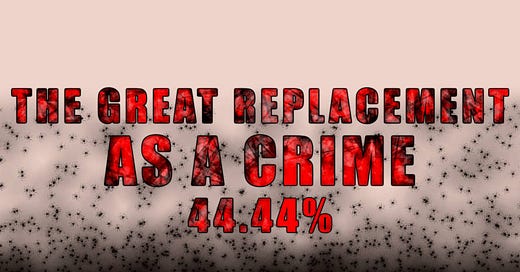

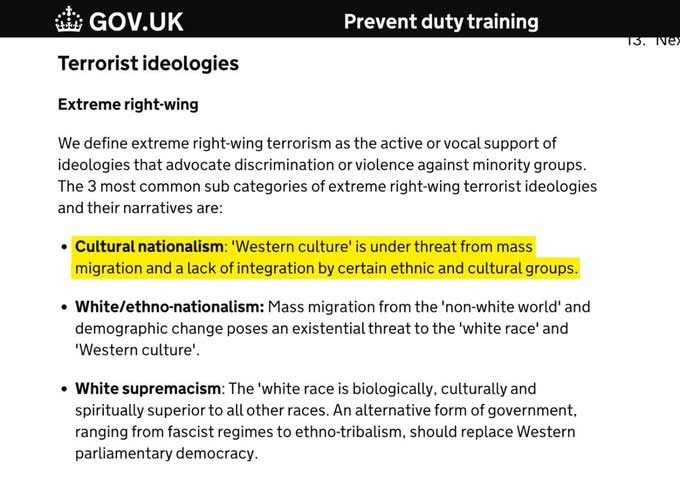


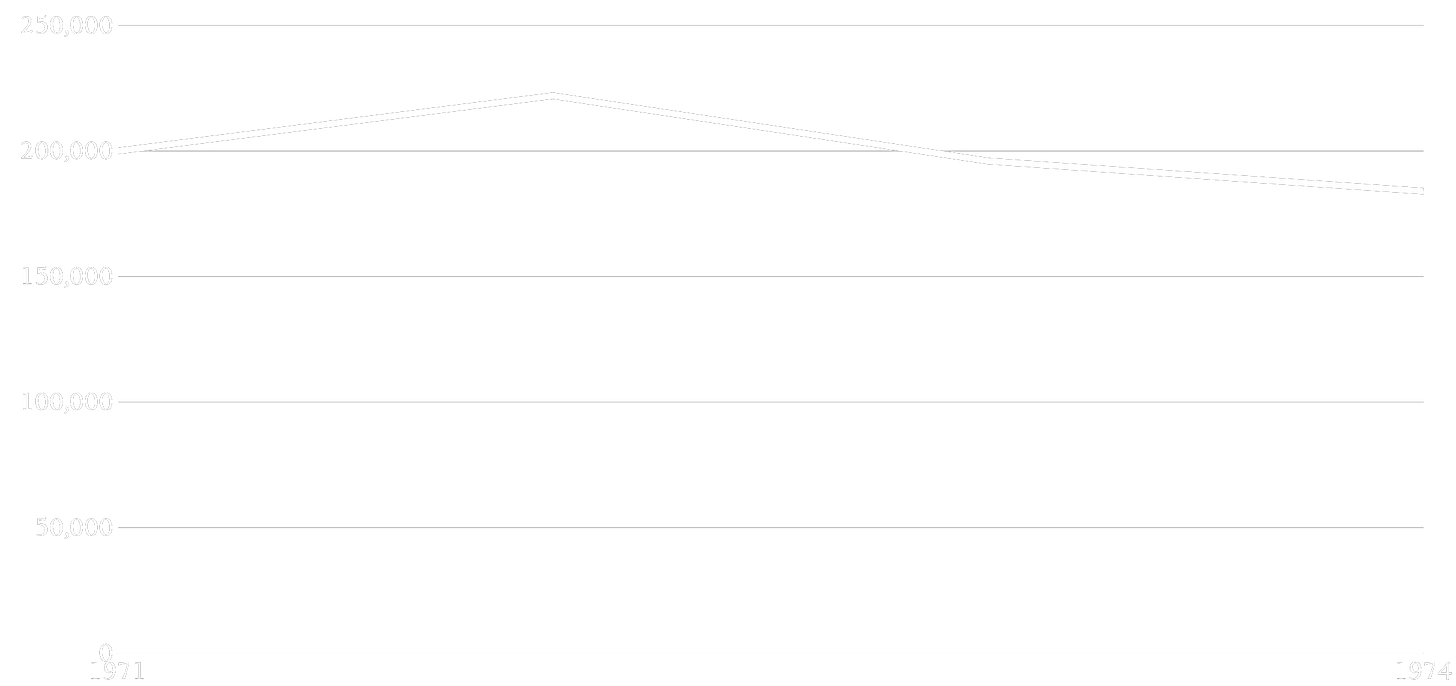






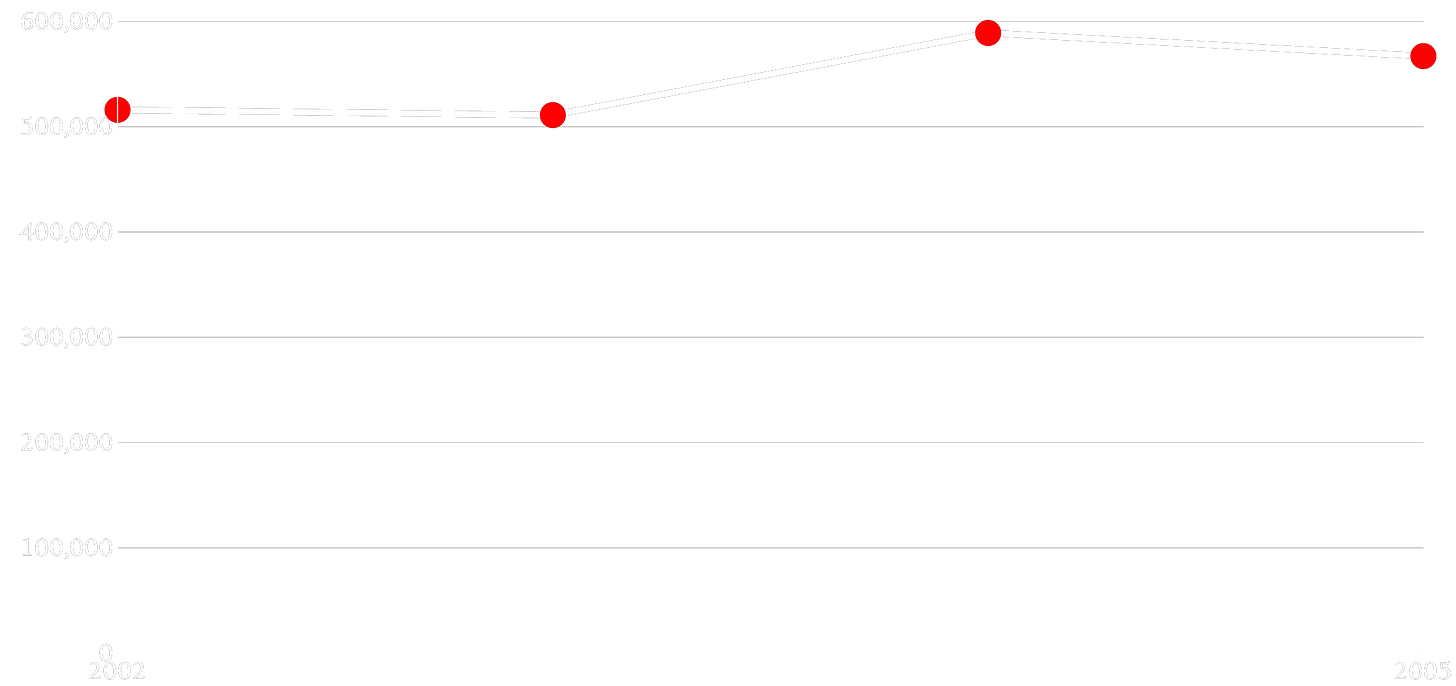





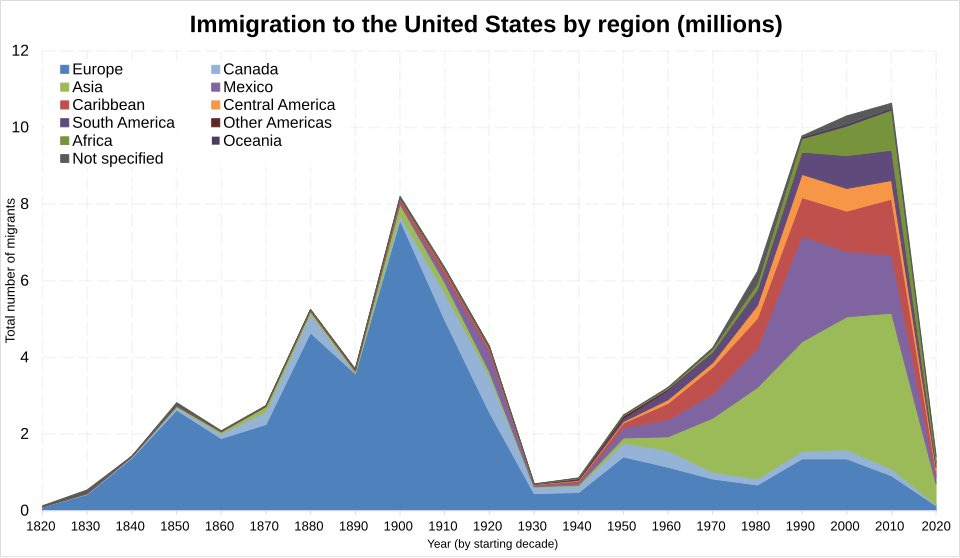
Very valuable resource. I remember you had a video called something like "white genocide is intentional and desired" where you went over similar material. It's very important to have such articles or videos to link to people.
This series of yours has the effect of, as it were, stepping back from an Impressionistic painting and suddenly the mass of blobs & confused colours resolves into distinct patterns & shapes.
One thing to always keep in mind is that during any election there are many issues that are being discussed, and whilst migration may be in the minds of some, voting decisions are made for other bread and butter issues. I have seen this time and again where an individual will voice very strongly that they are against mass immigration, yet come election day cast their vote for the very part who brings in the most immigrants. Doing so because of something to do with their job, or roads, how much they get paid etc.